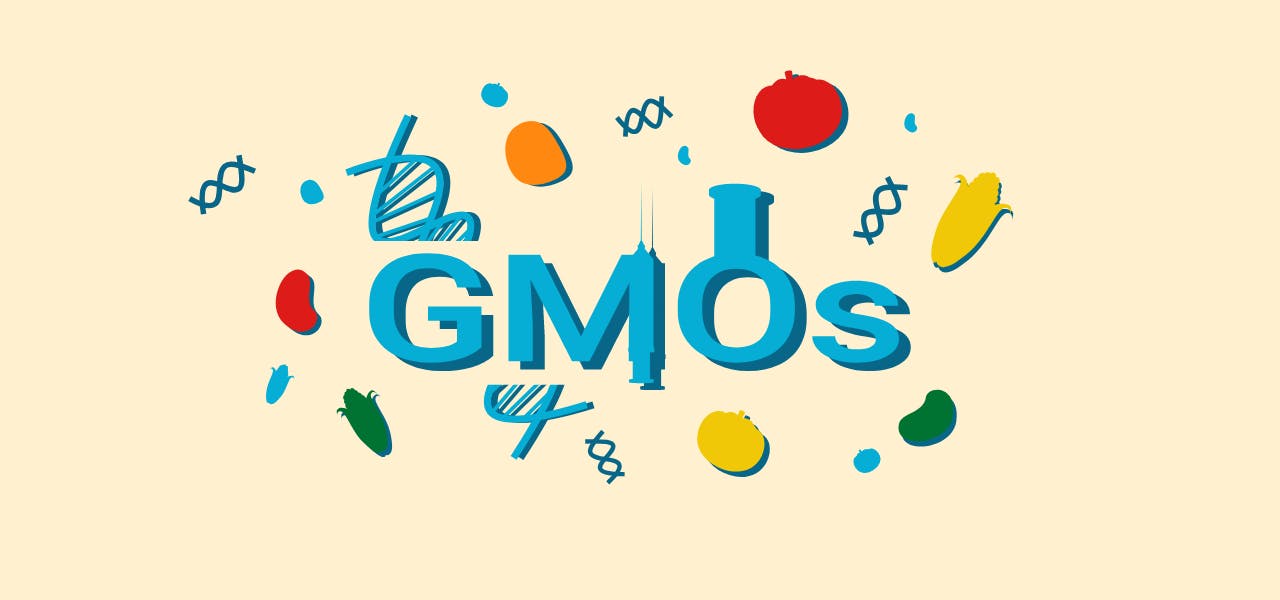Agriculture is one of the oldest evidence of civilization in human history. Over the past millennia, people have used different methods to modify their food sources, such as selective and cross-breeding of animals and plants to generate the most desirable traits possible. Once people realized that crops like corn could be cross-bred to create specific results, this practice became a regular part of agriculture in both plants and animals.
For the most part, the foods we eat today come from these traditional methods. However, there’s a high demand of a lot of foods due to a high global population, and these breeding methods take time. To solve that problem, genetic engineering was used to make the same changes, but faster. These modified plant and animal foods are called GMOs, and they were once thought to save the day, but now we’re not so sure. Some researchers have questioned the impact of GMOs on the food supply chain and humanity in general.
What are GMOs?
Modified foods have been sold in grocery stores and made available to consumers since the 1990s. They’ve been regulated by the FDA, EPA, and USDA, ensuring that the crops produced through this method are safe for everyone from the people eating them, the animals involved, and the environment.
The term genetically modified organisms, or GMOs, refers to any plant, animal, or microorganism that has been genetically altered at its DNA source. This is done with technology that transfers specific DNA from one organism to another, thereby genetically engineering the results.
Foods created through genetic engineering are referred to as “GMO.” However, new standards require that any of these modified foods be labeled as “bioengineered” instead of genetically engineered when they are released in the United States.
How GMOs Ensure Food Security
Supply and demand is a huge factor when it comes to food security. People want to eat, and they want their food to be something that they enjoy. However, healthy foods tend to be more expensive, some countries don’t have access to the agricultural methods that other geographical locations have, and the products are limited.
These are all challenges that had to be dealt with in order to prevent scarcity of food resources. GMOs were one way that this was approached. Through genetically modifying the best traits of certain plants and animals, scientists could improve the strains, making them stronger so they could overcome the limitations of a geographic area. For instance, berries that need a rich soil couldn’t grow in a location where the soil was dry and nutrient-barren. But with GMOs, scientists were able to develop a strain of berries that could grow in different types of soils. Because of these modified strains, berries became more accessible and affordable. But what cost comes from humans messing with nature?
The Impact of GMOs on the Food Supply Chain
The impact of GMO crops has, without a doubt, improved food security in certain ways. Food production has increased, making more food available both locally and globally. However, other consequences aren’t quite so positive.
The predominance of GMO crops means that there isn’t as much oversight. Food safety and food quality become reduced when the food is being generated in mass quantities without the tending and care of people ensuring the crops are grown correctly. On that same note, GMO crops reduce the price of these engineered foods, forcing farmers to reduce their own rates to be competitive. This is the factor that is predicted to have the largest effect on the food supply chain.
As farmers are forced to lower their asking prices for the results of their hard work, their own revenue reduces. They have to cut overhead, reduce their labor help, and take pay cuts themselves. Eventually, an overworked and underpaid farmer can’t keep up with the overhead necessary to plant healthy, safe crops or tend animals, and they either reduce the quality of care or shut down entirely. In countries where more than half of the job force is in agriculture, this is a huge hit to the entire economy and the food chain itself.
But most consumers don’t understand the impact of GMOs and prefer to buy quantity over quality. It’s a behavior that is typical of most of humanity, but the consequences may end up far-reaching for everyone. The product that was meant to save us and provide an end to food scarcity could very well have the exact opposite effect.
